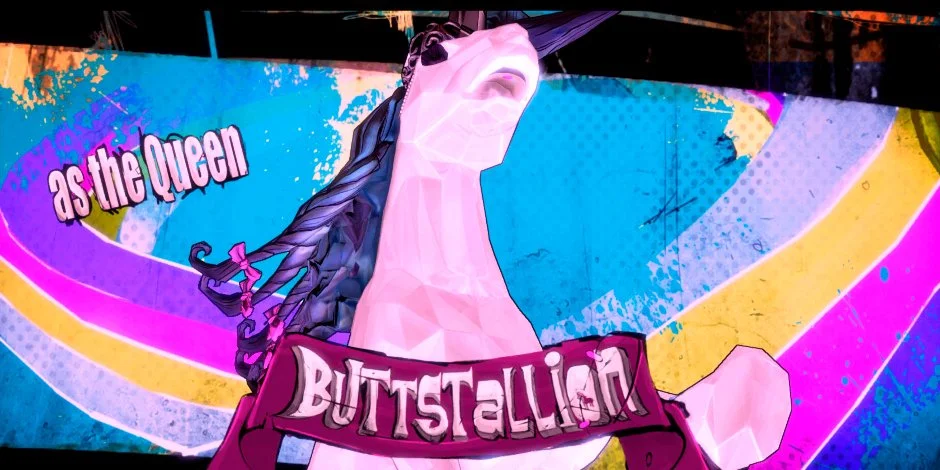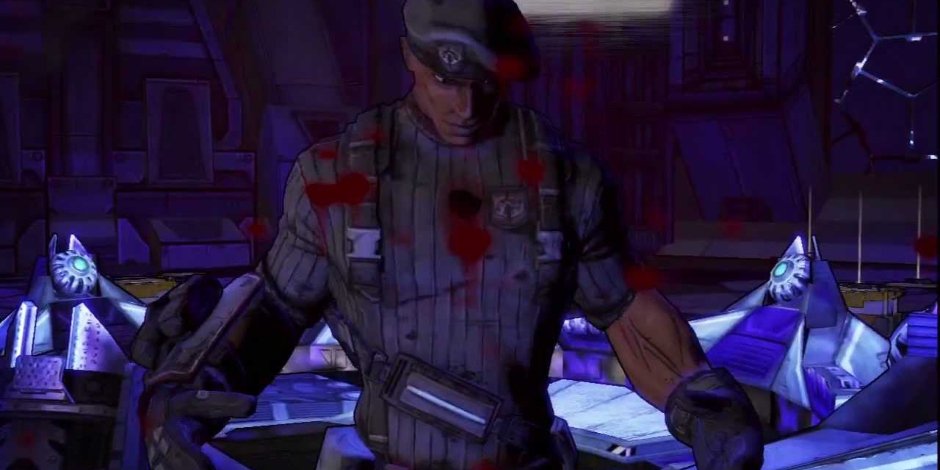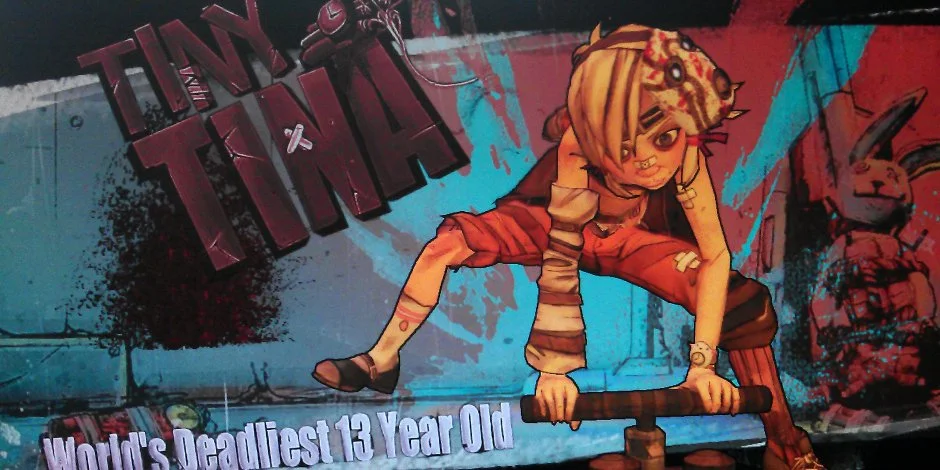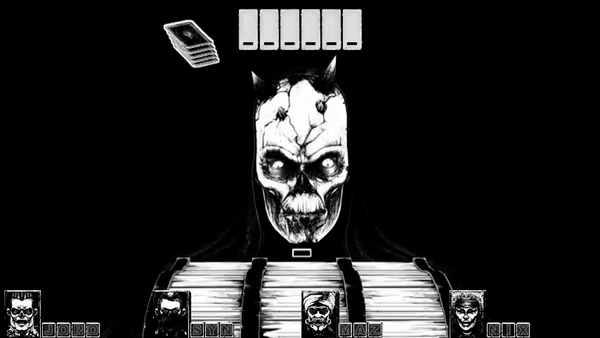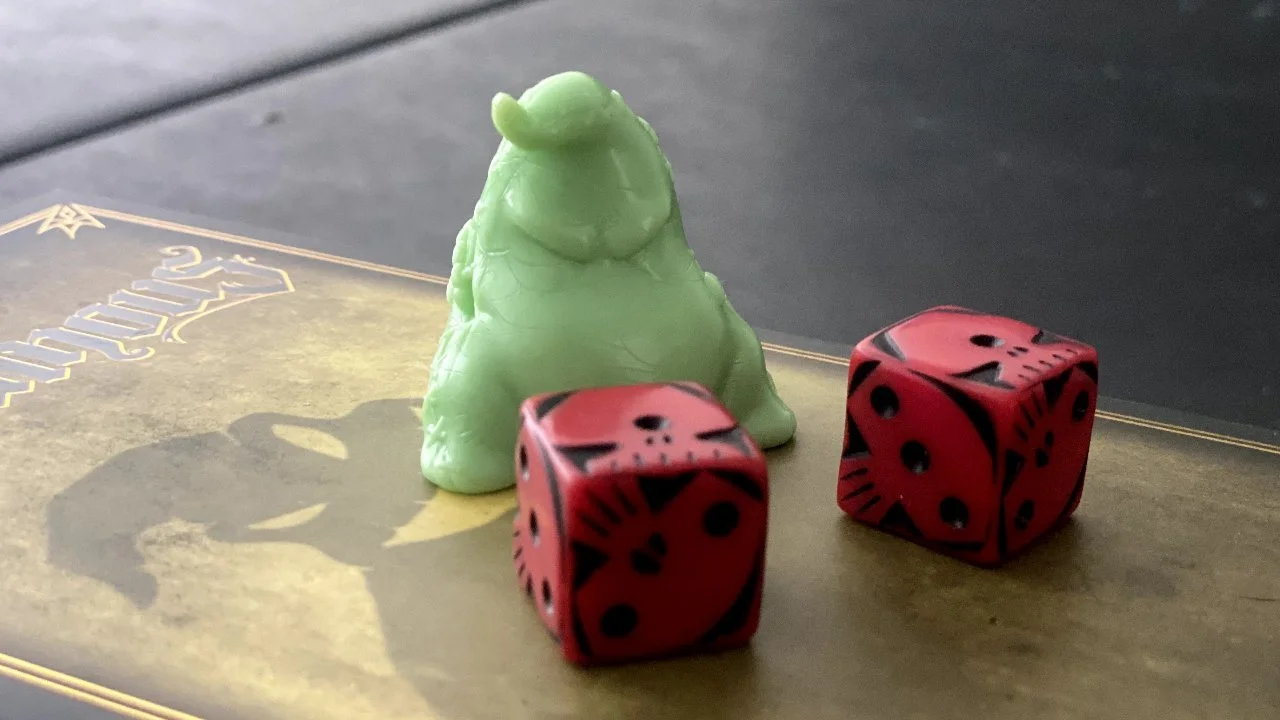The Borderlands series is well-known for its over-the-top brand of humor and colorful cast of characters. From Claptrap to Handsome Jack, from Tiny Tina to Butt Stallion, Borderlands is so synonymous with ridiculous jokes and zany chaos that many players often overlook the more serious, mature tones the series has struck in the past.
Borderlands, at its heart, is a series about trauma. These are people living on the edge of civilization, people who society has all but forgotten. Capitalist ventures have all but sucked the soul out of the galaxy, a theme beautifully explored in the Telltale spin-off Tales From The Borderlands. And the series is at its best when it deals with these issues, leaning into what makes it dark but also what makes it beautiful.
This is no more clear than in the recently re-released Tiny Tina’s Assault On Dragon Keep: A Wonderlands One-Shot Adventure (TTADK). A revamp of the Borderlands 2 DLC of mostly the same name, TTADK did something very few video games had done up to that point or since: reckon with grief. Specifically a child’s grief, the titular Tiny Tina.
In the main Borderlands 2 game, the heroes are led by a worn-down soldier named Roland, one of the first game’s playable characters. Roland tragically dies during the game’s story, shot through the back by the game’s villain right in front of the player. It’s a traumatic scene and one that has stuck with me through the years.
But I was 18 when I saw Roland die; Tina was 13, and she lost a friend and father figure. TTADK sees her channel her grief into a game of Bunkers & Badasses, a rip-off of Dungeons & Dragons that she oversees as Game Master. Trauma can trigger all kinds of responses in a person, both physical and mental, and Tina’s response manifests in the form of this game.
In a desperate fit to seize some measure of control over an ever-shifting world, Tina takes literal control over a game world. She recruits her friends as player characters while regularly questioning Roland’s missing presence. She goes so far as to put him in the game as an NPC, giving him the vaunted role of the heroic White Knight.
All of this is done with the typical Borderlands humor. There’s a boss named Mister Boneypantsguy, the Handsome Sorcerer sounds a heck of a lot like Handsome Jack, Butt Stallion is the queen of the kingdom, and Roland shoots dragons in a full suit of chain mail. But there’s a deep, emotional current running throughout the campaign that finally boils over after the final boss is defeated.
Grief is a hard thing to cope with. It’s even harder when you’re not old enough to fully understand what you’re feeling. I lost my grandfather shortly before my 18th birthday, and it shattered my family. It’s often said that there are stages to grief and that people move through them in a particular order.
But the truth is that grief comes in these weird, cyclical waves. You might find acceptance, only to backslide into anger at a moment’s notice. You might spend years in denial, refusing to accept this new normal you didn’t sign up for. Many people wallow in depression, unable to function. It’s a staggering feeling that we cannot prepare for, cannot comprehend when it hits us.
Tina is a strong character not because of her insanity or her badass demolition skills, but because of how human she is. She lost her parents at a young age and spent years alone on a hostile planet, but still managed to find a family worth fighting for. To lose another parental figure so quickly after finding him is a pain I can’t even comprehend.
The game ends with Tina memorializing both Roland and another fallen hero, Bloodwing, in her game, before hugging Roland’s memorial statue and offering a whispered goodbye in its ear. It is without a doubt one of the most profound moments in any form of media and still brings tears to my eyes.
Borderlands is a wonderful series because of the balance it strikes. It presents itself as this chaotic, zany, devil-may-care shooter where players can be trigger-happy serial killers alongside a group of their friends. And it does offer those things, but that’s not where its heart lies.
Borderlands is an emotional story about people surviving, leaning on one another, coping, and finding a way of carrying on. It’s about the relationships between people, like Rhys and Sasha or Maya and Ava. It’s about the sacrifices people make, like Scooter or Roland. It’s about the perseverance of spirit, like TK Baha or Lilith.
The emotional heart of this series, the powerful themes of people connecting and caring for one another, losing one another, growth, acceptance, and love are what make Borderlands such a special story. It’s about the trauma of living, and how we choose to address that trauma.
You can see it when Tina hugs Roland’s statue. When Scooter sacrifices himself for a crew he barely knows. When Lilith is forced to take over Roland’s command of the Crimson Raiders. Borderlands may be well known for its humor, but it is always at its best when it embraces the emotional elements that make it more human.
